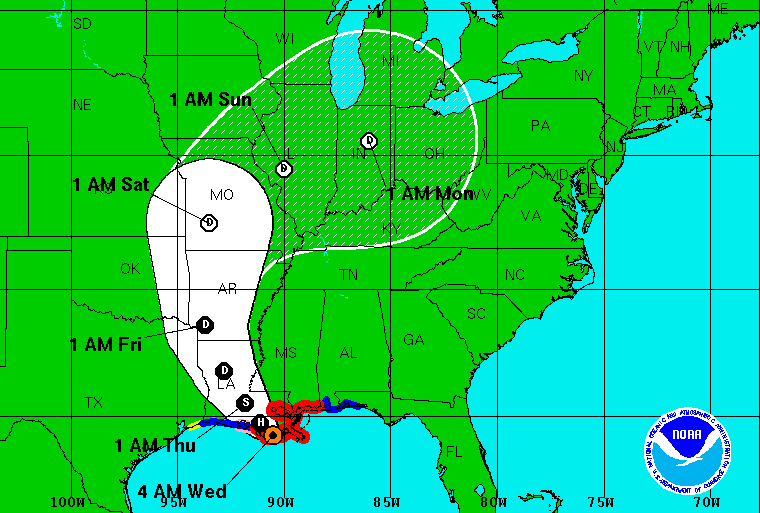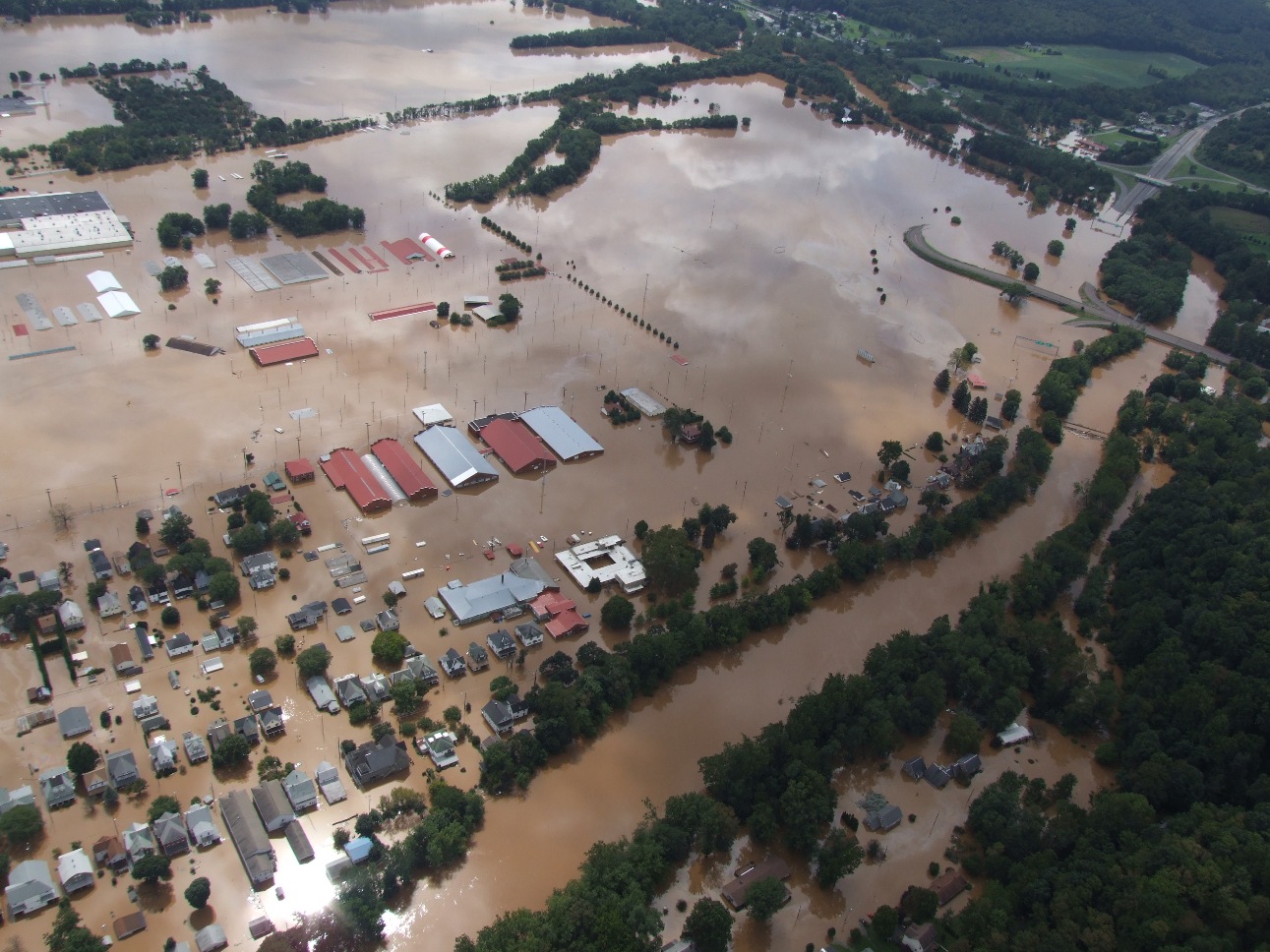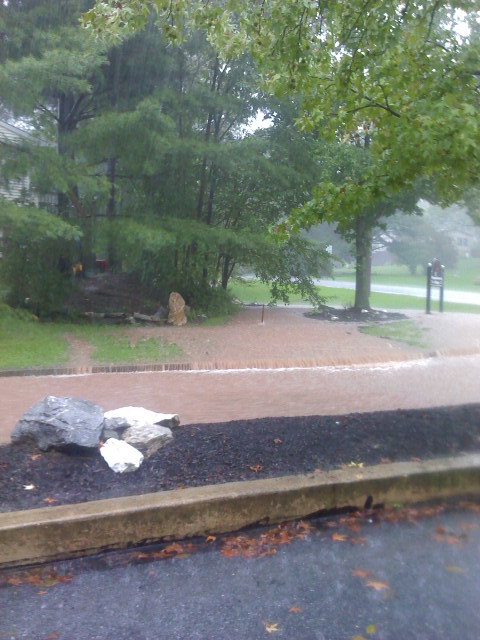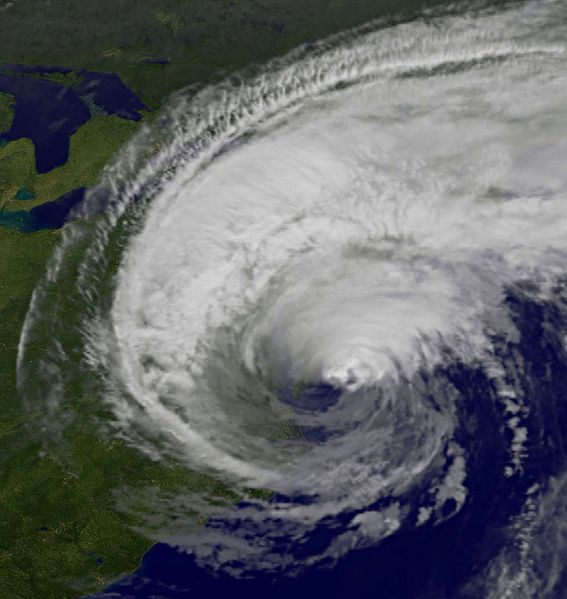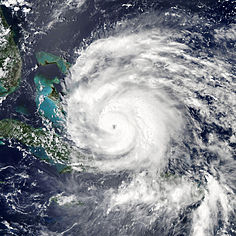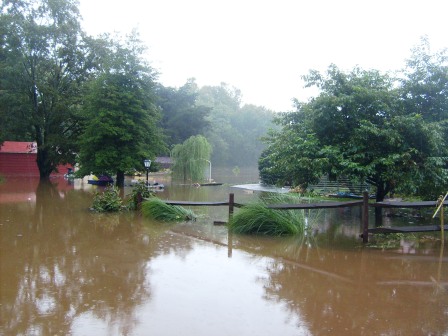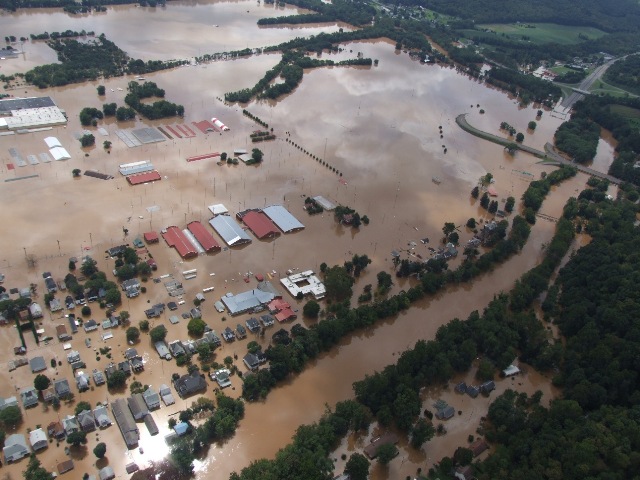Isaac Makes Landfall, Begins Slow Move Inland
On the 7th anniversary of Hurricane Katrina, Louisiana finds itself dealing with another storm as Hurricane Isaac made landfall overnight. The storm was a category 1 hurricane when it hit the coast and maintained that status during the hours that followed.
Here in Pennsylvania, forecasters will be watching the storm’s projected path as it moves first into the Midwest and then takes an expected eastward turn this weekend. The remnants of Isaac could impact the mid-Atlantic region, but much depends on upper level winds. The National Weather Service expects to have a better idea of the potential impact later in the week.
Parts of Pennsylvania are still recovering from last year’s devastating hurricane season, when Hurricane Irene swept up the East Coast in August, followed by the remnants of Lee, which drenched central and northeastern PA with more than a foot of rain over three days in September.


